Have you ever met someone that hated drinking water because they found it boring and flavorless?
I have. I don’t think they really understand the purpose of water. It’s supposed to taste…like water.
But because those people do exist, a whole market has risen up to address their specific need to make the elixir of life more interesting: water enhancers.
These tiny squeeze bottles contain concentrated flavor that can be added to water a few droplets at a time, adding both sweetness and bright new colors. Anything to put distance between the consumer and that bland liquid from the faucet.
Getting people to drink more H20 (even if it’s cleverly disguised) should be a good thing – but do the positive health claims made by the companies that produce these water enhancers hold water?
Does drinking enhanced water defeat the purpose of drinking water to begin with?
Let’s dive in and find out.
How Are Flavored Water Drops Used?
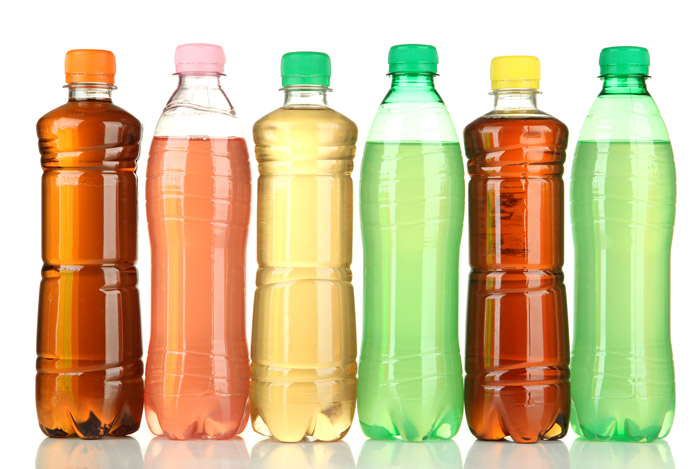 Since they first appeared on the market a few years ago, these flavor drops have become seriously popular. They’ve truly changed the beverage industry, with one brand bringing in $100 million in their first year.
Since they first appeared on the market a few years ago, these flavor drops have become seriously popular. They’ve truly changed the beverage industry, with one brand bringing in $100 million in their first year.
You can now easily find a wide selection of brands owned by beverage industry giants hoping to profit off of the growing trend.
Mostly, water enhancers are used by people who would rather drink water than a carbonated beverage or juice product, but still want some flavor. You might keep one of the little bottles tucked away in a drawer in your office, in the glove compartment of your car, or in your kitchen cabinet.
But making these a part of your regular routine as a sort of substitute for regular water is in question.
Parents, athletes, and anyone else who buys these products are susceptible to believing the claims that they are perfectly healthy.
In fact, a shocking number of parents surveyed rated sugary beverages as healthy. When they were asked why they thought so, they said they were influenced by claims appearing on the packaging. Words like “real” and “natural” and the mention of vitamin C and antioxidants played a part.
Because many of these water enhancers are marketed as healthy alternatives to energy drinks, people are using them in place of coffee or other beverages like energy drinks that are proven to be hazardous.
And since they’re 98% water, they’re allegedly better for you in the long run. But wait – what else is going on inside of those little bottles?
What’s Inside Water Enhancers?
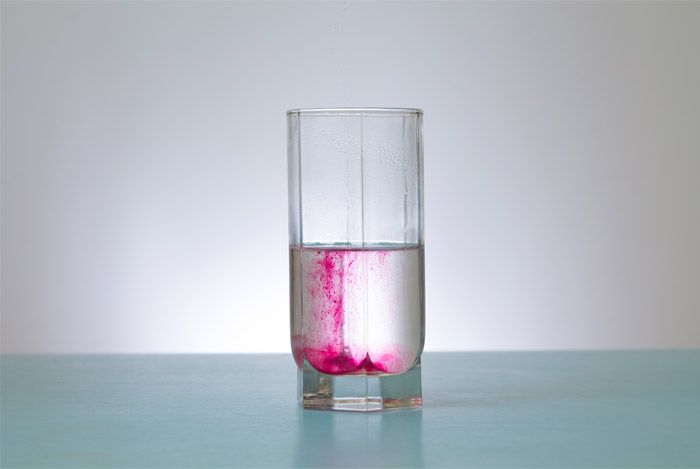 The bold claims and short nutrition labels on these little bottles can be pretty convincing to people trying to find that added flavor kick for their water.
The bold claims and short nutrition labels on these little bottles can be pretty convincing to people trying to find that added flavor kick for their water.
MiO Liquid Water Enhancer proudly displays a complete absence of calories, sugar, and carbohydrates. Zero grams across the board. So, if you’re trying not to drink your calories, these flavor droplets sound like a good option.
But, aside from water, a few other ingredients are included.
In a recommended serving size, you’ll be consuming 98% water. But in that other 2 percent, you’re getting:
- Citric acid
- Propylene glycol
- Caffeine
- Taurine
- Guarana extract
- Ginseng extract
- Sucralose
You’ll also find artificial colors and some B vitamins at around 10% of your daily value of each. It’s the B vitamins that get the most attention in the health claims made by the producers.
But the fact that these water enhancers won’t ruin your diet is cold comfort for some people who question their healthful qualities. They tend to look at a few of those key ingredients.
What is Propylene Glycol?
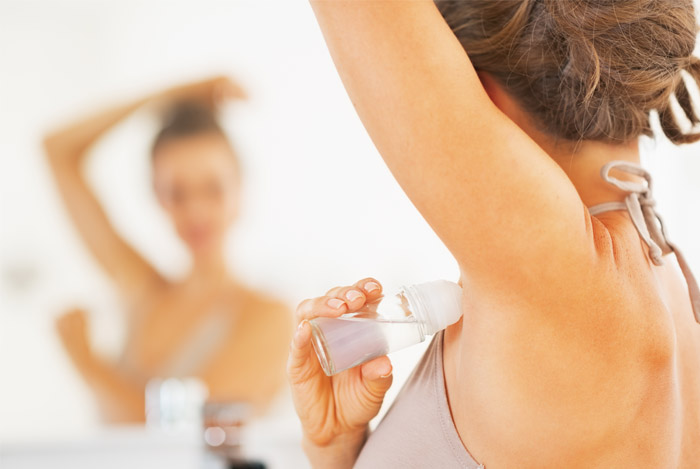 Here’s where it gets a little muddy.
Here’s where it gets a little muddy.
Propylene glycol has been linked to some scary stuff. Cell mutations as well as skin, liver, and kidney damage can be the result of ingesting high amounts.
A clear and somewhat bitter liquid used to prevent food discoloration over time, propylene glycol is often a source of controversy when it’s included on a list of ingredients.
And while it is the primary substance used in antifreeze, it’s also in a lot of items you probably use every day, like:
- Shaving cream
- Fragrances
- Deodorant
- Toothpaste
- Disinfecting gels
But even though it’s already a common substance, it still raises a lot of concerns because of its use in:
- E-cigarettes
- Fog machines
- Airplane de-icing fluid
- Brake fluid
Still, the United States Food and Drug Administration (FDA) considers propylene glycol to be “generally recognized as safe”. The Agency for Toxic Substances and Disease Registry (ATSDR) has it classified under the “no cancer” designation.
Studies on human consumption of propylene glycol in the 175-200 mg/kg range for 23 days showed no adverse health effects.
People are rightly curious as to why propylene glycol can lead such a double life and still be supposedly harmless. That’s a healthy skepticism if I’ve ever seen one. But, until there’s evidence to the contrary, don’t worry yourself sick over propylene glycol.
What is Sucralose?
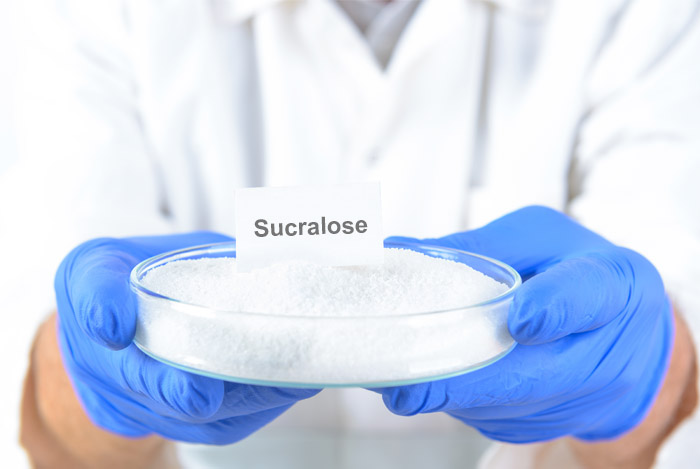 Sucralose is an artificial sweetener otherwise called by the brand name Splenda.
Sucralose is an artificial sweetener otherwise called by the brand name Splenda.
Several hundred times sweeter than ordinary sucrose, or table sugar, sucralose can replace sucrose at less than one-thousandth of the concentration.
Much like aspartame, which has yet to be demonstrated to be bad for you, sucralose has come under attack by rumors and claims of its danger to human health. Most of this comes from it being called “unnatural” or “fake”.
But these attacks are pretty obviously rooted in paranoia, not science.
During its initial approval process by the FDA, sucralose was subjected to extensive batteries of both short and long term studies in both animals and humans. None of the studies demonstrated any significant risk to humans when sucralose was consumed in normal amounts.
The only study that has shown negative effects of sucralose was funded by the Sugar Association, published in the Journal of Toxicology and Environmental Health, and was later refuted by another study.
However, if you’re trying to find a way to gain control over sugar cravings, it’s better to go cold turkey than to continue fueling them with artificial sweeteners. Aside from that, sucralose doesn’t set off any red flags.
How Much Should Be Used?
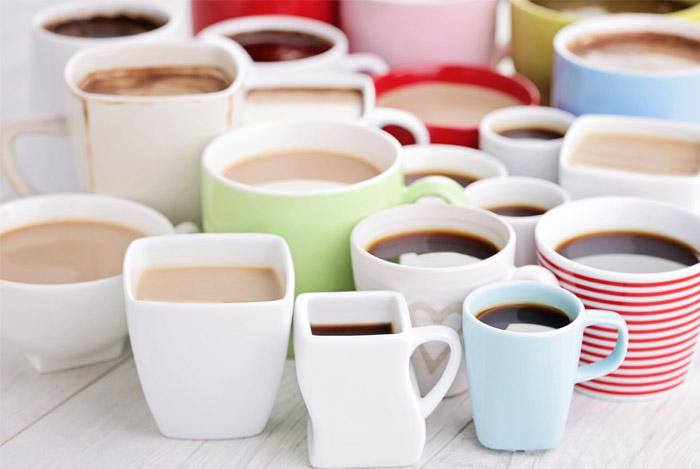 The real issue here is in portion control. While most research still shows that artificial sweeteners are either better than or no worse for the body than sugar, the fact that the user determines how much they consume is more alarming.
The real issue here is in portion control. While most research still shows that artificial sweeteners are either better than or no worse for the body than sugar, the fact that the user determines how much they consume is more alarming.
Already, there are dozens of videos posted to YouTube where people – typically teenagers and younger children – are drinking entire bottles, pouring them into small shot glasses and downing them in one swallow.
The serving size for MiO Liquid Water Enhancer is half a teaspoon. That’s the equivalent of a single six ounce cup of coffee. Downing the whole bottle, as is featured in these videos, is the same as drinking 18 cups of coffee.
The fact that people are not educated about the potential danger of doing this is worrisome, yes. However, these are extreme cases. And there are countless products on the market that when consumed in orders of magnitude greater than recommended serving size can pose serious health risks.
If you’re going to use water enhancers, follow the guidelines for serving sizes and how many times a day you should use them. The same concept should also apply to just about every other food or beverage you consume in your daily life.
The Evidence
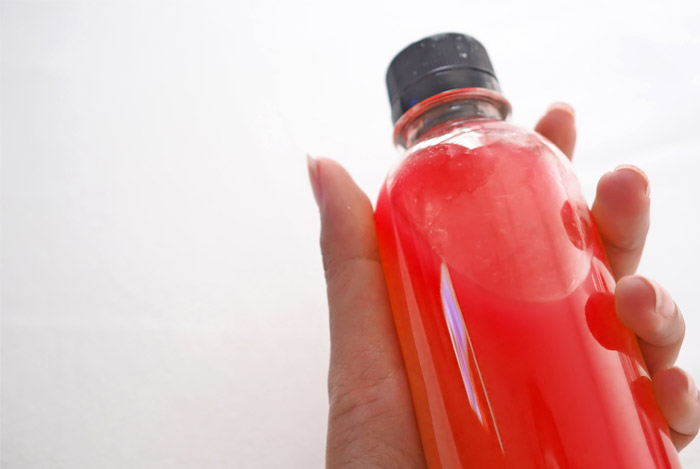 The truth is, there’s hardly any evidence at all to suggest water enhancers do anything other than add flavor.
The truth is, there’s hardly any evidence at all to suggest water enhancers do anything other than add flavor.
Unless you’re consuming them in huge amounts, you’re unlikely to get any dangerous doses of chemicals inside them – an obvious fact that applies to a huge range of substances we consume every day.
The health benefits really haven’t been proven either, other than through keeping you hydrated and helping you avoid far worse sugary beverages.
As mentioned earlier, the B vitamins found in these drinks are most often put forward as the reason why they could be considered healthy.
But, while B vitamins are required by the body to process food and turn it into energy, increasing the amount of B vitamins you get on a daily basis is not a way to magically boost your metabolism.
In fact, most people get all the B vitamins they need in their diet. Any excess is excreted by the body.
Guaranteed Healthy Ways of Adding Flavor to Your Water
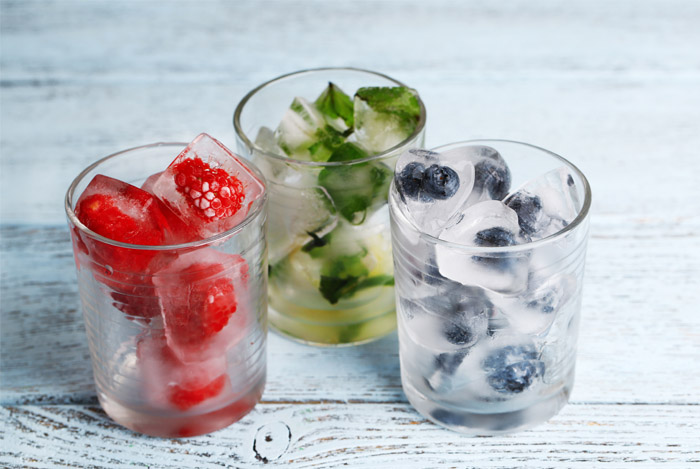 Ideally, you should learn to enjoy unflavored, all-natural H20 as your drink of choice. Because honestly, you do not need to have a stimulating flavor experience every time you quench your thirst.
Ideally, you should learn to enjoy unflavored, all-natural H20 as your drink of choice. Because honestly, you do not need to have a stimulating flavor experience every time you quench your thirst.
But if there’s no other way to float your boat, there are ways of flavoring your water that will still deliver that sweetness you desire without all the added questionable chemicals. There are also a few alternatives to water altogether that will still be more healthful than drinking a soda or a dreaded energy drink.
- Water with lemon juice
- Water with a cinnamon stick
- Water with lime juice
- Water with crushed mint or basil
- Seltzer with added fruit juice
- Unsweetened cranberry juice
- Unsweetened grape juice
You can even get crafty and make flavored ice cubes out of pureed fruit, fruit juice, or coffee and add those to your regular glass of water.
If you can’t get over the propylene glycol, the sucralose, or the issue generally discussed least – the price – try one of these or some other clever means of adding flavor to your water.
If you still want to try the convenient water enhancing squirt bottle method – but want to avoid most of the questionable chemicals – there are some brands which specifically exclude propylene glycol and use stevia as a sweetener instead.
Conclusion
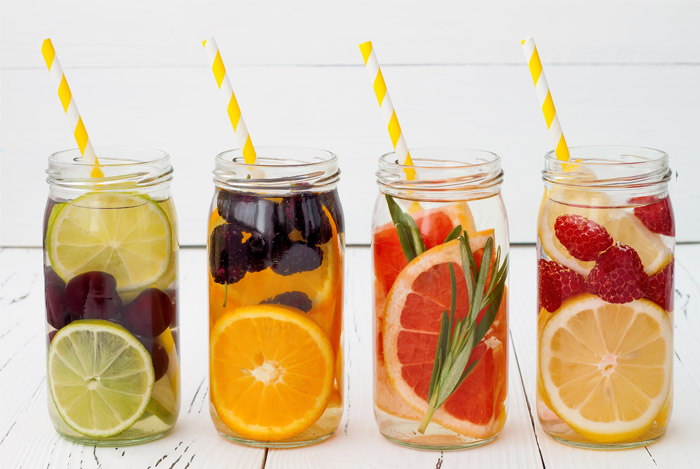 If you want to add a little flavor to your water, be my guest. From all the research available, it doesn’t seem like you’ll be doing yourself any real harm. At least you’ll stay hydrated!
If you want to add a little flavor to your water, be my guest. From all the research available, it doesn’t seem like you’ll be doing yourself any real harm. At least you’ll stay hydrated!
When study after study shows that the ingredients in something are perfectly fine for human consumption, I’m inclined to side with the science, not the emotional reaction a lot of people experience when they see those strange names listed in the ingredients.
And it’s true, there have been times where foods and beverages have been recalled because they had unsafe substances inside of them. That’s because the agencies and scientists meant to ensure the public stays in decent health (apart from what they choose to do to themselves) are doing their jobs.
What I’d mostly like to convey about these water enhancers is that you don’t need them. Water is amazing on its own. Drink more of it!
Do you do anything special with your water? Leave your response in the comments below!
The post Are Flavored Water Drops Actually As Healthy As They Claim? appeared first on Nutrition Secrets.
http://www.nutritionsecrets.com/flavored-water-drops/
No comments:
Post a Comment